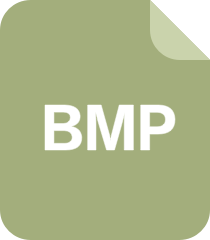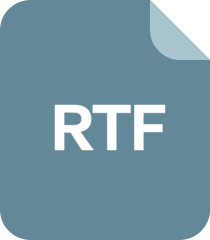电力系统中的潮流计算是电力工程领域的一个核心概念,主要用于分析电力网络在稳态下的运行状态。潮流计算程序是用来解决这一问题的专用软件工具,能够帮助工程师们预测和控制电网的电压、电流、功率流动等关键参数。在这个"cpp.zip"压缩包中,包含了基于牛顿—拉夫逊法的潮流计算程序的相关源代码和辅助文件。 牛顿—拉夫逊法是一种迭代算法,常用于求解非线性方程组,特别适用于电力系统潮流计算的问题。该方法以初始估计值为基础,通过不断迭代改进,直至找到满足精度要求的解。在电力系统中,这意味着计算各节点的电压和支路的电流,以确保功率平衡。 压缩包内的文件包括以下几个部分: 1. "潮流计算(牛顿—拉夫逊法).aps":这是Visual Studio的项目文件,包含项目的配置信息和编译设置,用于构建和运行潮流计算程序。 2. "MakeHelp.bat":这是一个批处理文件,可能用于生成帮助文档或执行构建过程的一部分。 3. ".clw"和".cpp"文件:"潮流计算(牛顿—拉夫逊法).clw"可能是代码浏览信息文件,配合IDE使用以查看源代码结构;".cpp"文件则是C++源代码,其中包含了实现牛顿—拉夫逊法的具体算法和功能。 4. "潮流计算(牛顿—拉夫逊法)View.cpp"、"MainFrm.cpp"、"潮流计算(牛顿—拉夫逊法)Doc.cpp":这些是MFC(Microsoft Foundation Classes)框架下的源代码,分别对应程序的视图、主框架和文档类,负责用户界面和数据处理。 5. "PAGESEL.cpp"、"PROPSHEET.cpp"、"PAGEPARA.cpp":这些文件可能与程序的多页对话框和参数设置界面有关,用户可以在这里输入电力系统的网络数据和计算参数。 通过这个压缩包,开发者或电力系统分析师可以研究和修改牛顿—拉夫逊法的实现,或者将此代码作为基础来开发自己的电力系统分析工具。了解并掌握潮流计算的基本原理和编程实现对于电力系统设计、规划和运行维护至关重要,特别是在考虑可再生能源并网、负荷预测和故障分析等复杂场景时。
 cpp.zip (77个子文件)
cpp.zip (77个子文件)  潮流计算(牛顿—拉夫逊法).h 1KB
潮流计算(牛顿—拉夫逊法).h 1KB 潮流计算(牛顿—拉夫逊法)Doc.cpp 2KB
潮流计算(牛顿—拉夫逊法)Doc.cpp 2KB 潮流计算(牛顿—拉夫逊法).plg 1KB
潮流计算(牛顿—拉夫逊法).plg 1KB 潮流计算(牛顿—拉夫逊法).dsw 577B
潮流计算(牛顿—拉夫逊法).dsw 577B res
res  潮流计算(牛顿—拉夫逊法).rc2 418B
潮流计算(牛顿—拉夫逊法).rc2 418B 潮流计算(牛顿—拉夫逊法)Doc.ico 1KB
潮流计算(牛顿—拉夫逊法)Doc.ico 1KB 潮流计算(牛顿—拉夫逊法).ico 1KB
潮流计算(牛顿—拉夫逊法).ico 1KB PAGESEL.cpp 1KB
PAGESEL.cpp 1KB 潮流计算(牛顿—拉夫逊法).cpp 4KB
潮流计算(牛顿—拉夫逊法).cpp 4KB 潮流计算(牛顿—拉夫逊法)View.h 2KB
潮流计算(牛顿—拉夫逊法)View.h 2KB 潮流计算(牛顿—拉夫逊法).ncb 105KB
潮流计算(牛顿—拉夫逊法).ncb 105KB 潮流计算(牛顿—拉夫逊法).clw 3KB
潮流计算(牛顿—拉夫逊法).clw 3KB 潮流计算(牛顿—拉夫逊法).opt 57KB
潮流计算(牛顿—拉夫逊法).opt 57KB PAGEPARA.cpp 913B
PAGEPARA.cpp 913B 潮流计算(牛顿—拉夫逊法)View.cpp 2KB
潮流计算(牛顿—拉夫逊法)View.cpp 2KB www.pudn.com.txt 218B
www.pudn.com.txt 218B StdAfx.cpp 228B
StdAfx.cpp 228B MainFrm.cpp 2KB
MainFrm.cpp 2KB resource.h 888B
resource.h 888B PROPSHEET.h 1KB
PROPSHEET.h 1KB hlp
hlp  HlpTBar.bmp 2KB
HlpTBar.bmp 2KB CurArw2.bmp 310B
CurArw2.bmp 310B FileOpen.bmp 566B
FileOpen.bmp 566B Scmin.bmp 502B
Scmin.bmp 502B RecPrev.bmp 502B
RecPrev.bmp 502B 潮流计算(牛顿—拉夫逊法).cnt 251B
潮流计算(牛顿—拉夫逊法).cnt 251B EditCopy.bmp 502B
EditCopy.bmp 502B FileNew.bmp 566B
FileNew.bmp 566B FilePrnt.bmp 502B
FilePrnt.bmp 502B RecNext.bmp 502B
RecNext.bmp 502B 潮流计算(牛顿—拉夫逊法).hpj 2KB
潮流计算(牛顿—拉夫逊法).hpj 2KB EditPast.bmp 502B
EditPast.bmp 502B Scmax.bmp 502B
Scmax.bmp 502B ScMenu.bmp 6KB
ScMenu.bmp 6KB RecFirst.bmp 502B
RecFirst.bmp 502B AppExit.bmp 7KB
AppExit.bmp 7KB EditUndo.bmp 502B
EditUndo.bmp 502B 潮流计算(牛顿—拉夫逊法).HLP 36KB
潮流计算(牛顿—拉夫逊法).HLP 36KB CurHelp.bmp 502B
CurHelp.bmp 502B EditCut.bmp 502B
EditCut.bmp 502B 潮流计算(牛顿—拉夫逊法).ph 1KB
潮流计算(牛顿—拉夫逊法).ph 1KB AfxCore.rtf 78KB
AfxCore.rtf 78KB CurArw4.bmp 566B
CurArw4.bmp 566B 潮流计算(牛顿—拉夫逊法).LOG 5KB
潮流计算(牛顿—拉夫逊法).LOG 5KB Bullet.bmp 142B
Bullet.bmp 142B FileSave.bmp 502B
FileSave.bmp 502B 潮流计算(牛顿—拉夫逊法).hm 433B
潮流计算(牛顿—拉夫逊法).hm 433B RecLast.bmp 502B
RecLast.bmp 502B HlpSBar.bmp 15KB
HlpSBar.bmp 15KB PAGEPARA.h 1KB
PAGEPARA.h 1KB 潮流计算(牛顿—拉夫逊法).dsp 11KB
潮流计算(牛顿—拉夫逊法).dsp 11KB MainFrm.h 2KB
MainFrm.h 2KB StdAfx.h 1KB
StdAfx.h 1KB PAGESEL.h 1KB
PAGESEL.h 1KB 潮流计算(牛顿—拉夫逊法).rc 13KB
潮流计算(牛顿—拉夫逊法).rc 13KB 潮流计算(牛顿—拉夫逊法).aps 43KB
潮流计算(牛顿—拉夫逊法).aps 43KB Debug
Debug  StdAfx.obj 103KB
StdAfx.obj 103KB 潮流计算(牛顿—拉夫逊法).res 7KB
潮流计算(牛顿—拉夫逊法).res 7KB 潮流计算(牛顿—拉夫逊法)Doc.obj 14KB
潮流计算(牛顿—拉夫逊法)Doc.obj 14KB 潮流计算(牛顿—拉夫逊法).cnt 251B
潮流计算(牛顿—拉夫逊法).cnt 251B 潮流计算(牛顿—拉夫逊法).exe 124KB
潮流计算(牛顿—拉夫逊法).exe 124KB PROPSHEET.obj 15KB
PROPSHEET.obj 15KB 潮流计算(牛顿—拉夫逊法).obj 22KB
潮流计算(牛顿—拉夫逊法).obj 22KB 潮流计算(牛顿—拉夫逊法).pdb 489KB
潮流计算(牛顿—拉夫逊法).pdb 489KB 潮流计算(牛顿—拉夫逊法).ilk 353KB
潮流计算(牛顿—拉夫逊法).ilk 353KB 潮流计算(牛顿—拉夫逊法)View.obj 22KB
潮流计算(牛顿—拉夫逊法)View.obj 22KB vc60.idb 233KB
vc60.idb 233KB 潮流计算(牛顿—拉夫逊法).HLP 36KB
潮流计算(牛顿—拉夫逊法).HLP 36KB vc60.pdb 364KB
vc60.pdb 364KB PAGEPARA.obj 14KB
PAGEPARA.obj 14KB MainFrm.obj 18KB
MainFrm.obj 18KB PAGESEL.obj 14KB
PAGESEL.obj 14KB 潮流计算(牛顿—拉夫逊法).GID 11KB
潮流计算(牛顿—拉夫逊法).GID 11KB MakeHelp.bat 2KB
MakeHelp.bat 2KB 潮流计算(牛顿—拉夫逊法)Doc.h 1KB
潮流计算(牛顿—拉夫逊法)Doc.h 1KB ReadMe.txt 5KB
ReadMe.txt 5KB PROPSHEET.cpp 1KB
PROPSHEET.cpp 1KB- 1

- 粉丝: 82
- 资源: 1万+
 我的内容管理
展开
我的内容管理
展开
 我的资源
快来上传第一个资源
我的资源
快来上传第一个资源
 我的收益 登录查看自己的收益
我的收益 登录查看自己的收益 我的积分
登录查看自己的积分
我的积分
登录查看自己的积分
 我的C币
登录后查看C币余额
我的C币
登录后查看C币余额
 我的收藏
我的收藏  我的下载
我的下载  下载帮助
下载帮助

 前往需求广场,查看用户热搜
前往需求广场,查看用户热搜最新资源
- 老男孩python-19-python员工信息表案例01.mp4
- 老男孩python-21-python员工信息表案例03.mp4
- 老男孩python-22-第二关python作业01.mp4
- 机械设计顶管机的总体方案与顶推装置sw14全套技术资料100%好用.zip
- 老男孩python-23-第二关python作业02.mp4
- 老男孩python-24-第三关课前思想.mp4
- 老男孩python-27-python迭代器和生成器.mp4
- 老男孩python-26-python集合 Map Zip.mp4
- 老男孩python-25-第三关学生作业展示.mp4
- 老男孩python-28-python lamda函数.mp4
- 老男孩python-29-python Pickle JSON序列化.mp4
- 老男孩python-30-python正则表达式.mp4
- 机械设计动态称重秤x_t全套技术资料100%好用.zip
- 老男孩python-32-第三关关底python信用卡项目作业.mp4
- 老男孩python-33-python第三关ATM作业展示.mp4
- 机械设计端盖上料涂油一体机step全套技术资料100%好用.zip


 信息提交成功
信息提交成功